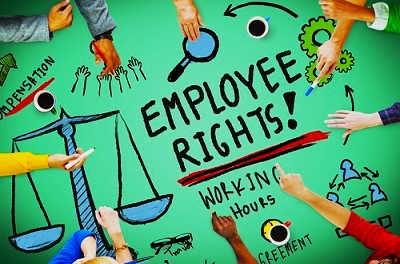Employee misclassification lawsuits arise when an individual’s employment status does not accurately reflect their actual role and duties at work. These lawsuits are important mechanisms for workers seeking rightful compensation for their labor under the correct employment classification. Here are three key aspects to understand about employee misclassification lawsuits:
- Various Forms of Misclassification
- Recovery of Unpaid Wages and Benefits
- Prevalence in the Gig Industry
You can be misclassified in different ways
Misclassification of employees can occur in several ways, not just through the incorrect designation as an independent contractor, which is a common misunderstanding. Here are the two primary types of misclassification and the issues they each present:
Misclassified as an Independent Contractor
- Issues: When workers are misclassified as independent contractors instead of employees, they miss out on various benefits and protections such as minimum wage, overtime pay, unemployment insurance, and workers’ compensation. This type of misclassification can lead to significant financial losses for the worker, as they may also be responsible for self-employment taxes.
- Common in: Gig economy jobs, freelance work, and certain industries that prefer the flexibility of contract work over hiring full-time employees.
Misclassified as an Exempt Employee
- Issues: Being misclassified as an exempt employee means being incorrectly categorized in a way that exempts one from overtime pay and sometimes minimum wage protections, under the assumption that they meet certain criteria typically related to job duties, salary level, and how they are paid. Workers may end up working extra hours without appropriate compensation.
- Criteria for Exemption: Generally involves managerial roles, professional tasks, or specific skilled labor where the employee has significant discretion in their job duties. The Fair Labor Standards Act (FLSA) sets forth criteria for exempt status, and misclassification can result in employees not receiving overtime pay they are entitled to.
Independent contractor mistakes
Exempt employee misclassification occurs when workers are incorrectly classified as exempt from certain labor laws, particularly those related to minimum wage, overtime pay, and meal and rest breaks. This misclassification typically hinges on the assumption that the employee fits into specific exemption categories, largely defined by the nature of their work, level of responsibility, and, in some cases, compensation level. Understanding these exemptions and their criteria is crucial for both employees and employers to ensure compliance with labor laws and to protect workers’ rights.
Key Exemptions Include:
- White-Collar Exemption:
- Executive Exemption: Generally applies to employees with managerial duties, who supervise two or more other employees, and have significant input into job status decisions of other employees (e.g., hiring, firing).
- Administrative Exemption: For employees performing office or non-manual work directly related to business operations or management, exercising discretion and independent judgment.
- Professional Exemption: Covers employees engaged in work requiring advanced knowledge in a field of science or learning, typically acquired by prolonged education.
- Computer Professional Exemption:
- Applicable to workers in certain computer-related occupations, provided they meet specific salary and duty criteria.
- Doctors and Surgeons:
- Generally exempt due to their professional qualifications and the nature of their work.
- Public Employees:
- Certain government workers may have different exemptions based on specific state or federal regulations.
- Outside Salespeople:
- Employees primarily engaged in making sales or obtaining contracts or orders outside the employer’s place of business.
Implications of Misclassification:
- Non-exempt workers misclassified as exempt: May miss out on entitlements such as overtime pay, minimum wage protections, and mandated rest and meal breaks.
- Employer Liability: Misclassifying employees can lead to significant legal and financial consequences for employers, including back pay for unpaid wages, penalties, and damages.
Employers must carefully evaluate job roles and duties against state and federal criteria for exemptions to ensure accurate classification. For workers, understanding your classification and the exemptions that may or may not apply to your role is essential for asserting your rights and seeking recourse if you believe you have been misclassified. If misclassification is suspected, consulting with a labor law attorney can help clarify one’s status and explore options for addressing any discrepancies.
Can I recover unpaid wages and benefits in a misclassification case?
Yes, in a misclassification case, you can recover unpaid wages and benefits. If you were wrongly classified as an independent contractor or as an exempt employee, you might be entitled to:
- Back pay for unpaid wages up to the minimum wage,
- Unpaid overtime,
- Compensation for missed meal and rest breaks,
- Interest on unpaid wages,
- Attorney’s fees, and potentially,
- Liquidated damages or double damages for unpaid wages (in cases of exempt worker misclassification under federal law),
- Civil penalties against the employer for willful misclassification (in certain states like California).
Consulting with an employment attorney can help you understand your rights and the specifics of your case.
If you’ve been improperly classified as an independent contractor or as an exempt employee, you might be eligible to pursue a wage and hour lawsuit to claim a variety of significant damages. Misclassification can lead to workers not receiving the compensation and benefits they’re entitled to under labor laws, but legal avenues are available to rectify this situation and recover owed amounts.
What You Can Recover in a Misclassification Lawsuit
Regardless of the specific nature of your misclassification, you may be entitled to claim:
- Back Pay for Unpaid Minimum Wages: If your earnings fell below the minimum wage due to misclassification, you could recover the difference.
- Unpaid Overtime: Employees misclassified as exempt from overtime are eligible to claim compensation for overtime hours not paid.
- Compensation for Missed Breaks: Workers entitled to meal and rest breaks but did not receive them can seek payment for these missed breaks.
- Interest on Delayed Payments: Additionally, you can claim interest on any wages that were not paid on time.
- Recovery of Legal Costs: The law often allows for the recovery of attorney’s fees in successful misclassification lawsuits, making it easier for workers to afford legal representation.
Additional Damages Depending on Your Situation
- Liquidated Damages for Exempt Employees: If you were incorrectly classified as an exempt employee, federal law might entitle you to liquidated damages. This means you could potentially recover an amount equal to twice your unpaid wages.
- Civil Penalties for Deliberate Misclassification as an Independent Contractor: In some states, like California, employers who intentionally misclassify employees as independent contractors face hefty civil penalties, ranging from $5,000 to $25,000 per violation. This acts as both a punishment for the employer and a deterrent against future misclassifications.
Importance of Taking Legal Action
- Secure Your Rights: Legal action can recover owed wages and benefits.
- Get Expert Help: An employment attorney can guide you through the process.
- Assess Your Case: An attorney can evaluate your situation and potential damages.
- Fight for Fairness: You help advocate for fair labor practices for all workers.

Who is often misclassified?
Gig workers like Lyft or Uber drivers, If you find yourself improperly classified as an independent contractor or as an exempt employee, it’s possible to seek legal redress through a wage and hour lawsuit. Such actions can result in the recovery of significant damages, rectifying the financial discrepancies caused by misclassification.
Regardless of the nature of your misclassification, you may be entitled to recover:
- Compensation to adjust your earnings to at least the minimum wage,
- Wages for unpaid overtime,
- Payment for unprovided meal or rest breaks,
- Interest accrued on any unpaid wages, and
- Coverage for attorneys’ fees incurred during your claim.
For those misclassified as exempt employees, federal regulations may enable you to claim liquidated damages. This means you could recover twice the amount of your unpaid wages—both the original sum and an equal amount in damages.
In instances where misclassification as an independent contractor was deliberate, certain states impose significant civil penalties on employers. For example, California law stipulates fines ranging from $5,000 to $25,000 for each willful misclassification violation.
Misclassification in the Gig Economy: A Closer Look
Workers within the gig economy, especially those driving for ridesharing platforms like Uber and Lyft, frequently find themselves incorrectly labeled as independent contractors. These companies, which identify primarily as tech entities providing an app for ridesharing, argue this designation exempts them from traditional employer responsibilities, including:
- Paying minimum wages or overtime,
- Assuming liability for accidents or criminal acts committed by drivers.
This classification is integral to their business model, significantly reducing operational costs. However, this practice has drawn criticism and regulatory scrutiny, prompting proposals for new rules by the U.S. Department of Labor aimed at more clearly defining the criteria for independent contractor status to protect worker rights effectively.
The misclassification of gig workers underscores a broader issue within modern employment landscapes, challenging traditional definitions and protections in the workforce. As legal standards evolve, it’s crucial for workers to understand their rights and for employers to accurately classify their employees to ensure fair treatment and compensation for all.
Navigating the Complexities of Employment Misclassification
Misclassification of workers—whether as independent contractors or exempt employees—presents a critical challenge in the labor market, often leading to disputes over employment rights and benefits. Notably, the presence of an independent contractor agreement or an employment contract specifying a worker’s role does not conclusively establish one’s employment status. Here’s an in-depth look at the pivotal factors surrounding employment misclassification and the legal pathways available for resolution.
Understanding the Role of Employment Contracts
- Contractual Designations vs. Legal Reality: While many freelancers and workers enter into agreements that label them as independent contractors, such designations in contracts do not definitively determine their legal employment status. Similarly, being categorized as an exempt employee in a contract does not automatically exempt one from overtime and minimum wage protections if their actual job duties do not align with legal exemption criteria.
- Employment Law Prevails: The definitive authority on one’s employment status stems from state employment laws, not the terms of a contract. These laws set forth clear criteria and tests (like the “ABC test” in some jurisdictions) to accurately classify workers.
The Consequences of Misclassification
- Independent Contractor Misclassification: Workers inaccurately classified as independent contractors may be denied crucial employment benefits and protections, such as overtime pay, health insurance, and workers’ compensation.
- Exempt Employee Misclassification: Individuals wrongly classified as exempt from overtime due to an administrative, professional, or executive exemption, yet whose job duties do not meet these criteria, are entitled to overtime compensation and other protections afforded to non-exempt employees.
Legal Recourse and Class Action Lawsuits
- Seeking Expert Legal Advice: The first step in addressing potential misclassification is consulting with an employment attorney skilled in labor law. A legal professional can assess your situation against the backdrop of applicable state and federal laws to determine if misclassification has occurred.
- Potential for Collective Action: If misclassification is systemic within a company, affected employees may have grounds for a class action lawsuit. Such legal actions not only seek to recover unpaid wages and benefits for the group but also aim to rectify broader employment practices within the organization.




